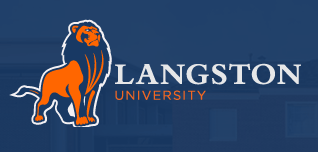Date of Award
12-1995
Document Type
Thesis
Department
Education
First Advisor
Alex Lewis
Second Advisor
Darlene Abram
Third Advisor
Viletta Partridge
Abstract
In 1978, a recurring effort was made to remedy the constant decline of test scores in the area of mathematics around the country (Milhalko, 1978). At this time educational methods of "back-to-basics" and "competency-based" programs were seen as the solutions to the drastic decline in test scores and the decrease in interest among students in mathematics courses. Seventeen years later, teachers of mathematics in both the secondary schools and universities (entry level courses) are confronted daily with students who possess a fear of mathematics, students who are unwilling, uninterested, and unable to learn the concepts in mathematics, and students who possess a combination of these problems.
These negative attitudes about the subject of mathematics have led students to have low grades and in some situations to fail in some or all areas of mathematics. As a result, some researchers assume there will inevitably not be enough capable people interested in careers of science and engineering because these areas require application of mathematical knowledge and concepts. The major concern of mathematics professionals, educators, and society is whether or REFERENCE NOTTO BE TAKEN FROM THIS ROOM 2 not public schools and higher education are taking steps to change the dispositions of the students so that a higher percentage of students understand, appreciate, and use mathematics, which in turn will prepare them for careers requiring the application of knowledge of mathematics.
The answer to this question is complex. A number of articles, books, and papers have been written to identify the crux of the problem and suggest ideas for improving mathematics curricula to meet the needs of students preparing for careers in a technological world.
The educational setting of the problem in this study focuses on college entry level mathematics courses at Langston University, the only historically black college or university (HBCU) in the state of Oklahoma and the only Oklahoma college with both a land grant and urban mission.
Langston University is located in a rural area in North Central Oklahoma and has upper-division centers in Tulsa and Oklahoma City. The problem faced by a large number of students in the Langston University main campus mathematics program is that they fail, drop, and have to retake mathematics classes and that they possess a general dislike for mathematics and apparently are unable to grasp the mathematical concepts taught by teachers at Langston University on the main campus. Most students must struggle to understand in the mathematics courses in which they are enrolled.
Many of the students at Langston University attribute their difficulties in mathematics to a variety of reasons. Some leave Langston University never to return or delay their progress and advancement in their specific educational areas because of their problems in the six hours of mathematics which they must take to meet general education requirements.
The problem of students not being able to interpret and understand or appreciate the concepts of mathematics has become a nationwide problem and seems to be intensifying rather than improving. According to research this problem exists on most university campuses in their mathematics programs.
Recommended Citation
Bostic, Cristie L., "The Analysis of Methods of Instruction in College Algebra and Trigonometry Courses in the Langston University Department of Mathematics" (1995). McCabe Thesis Collection. 24.
https://dclu.langston.edu/mccabe_theses/24
Included in
Curriculum and Instruction Commons, Educational Assessment, Evaluation, and Research Commons, Higher Education and Teaching Commons
